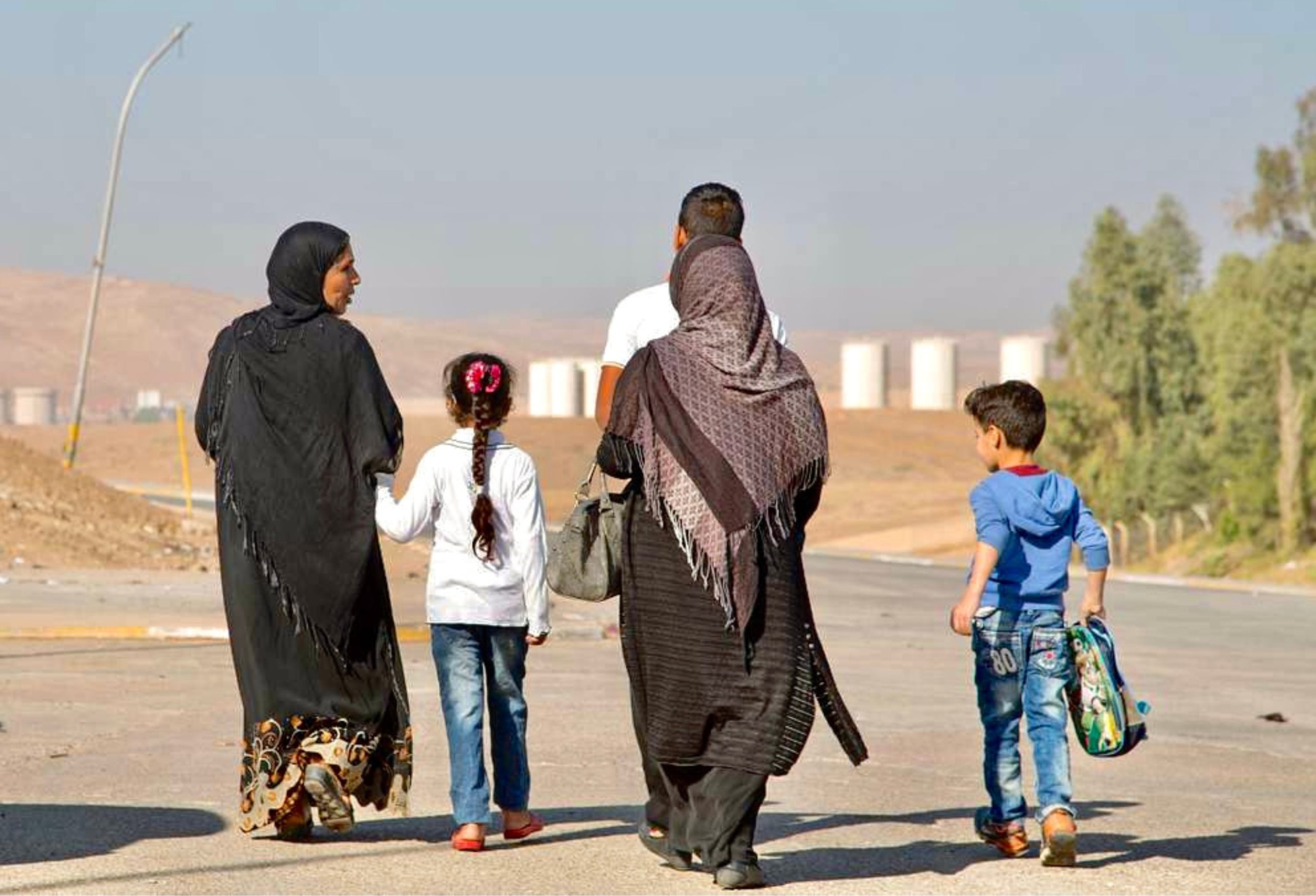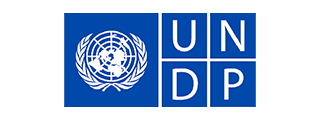
Author: Kristina Jadranović
From the 1970s to modern day
Representations of, and discourse on, women from Northern Africa and Western Asia that come from the Global North or “western” perspective, oftentimes reduce a diverse, multifaceted experience to a singular “Middle Eastern” and “Muslim” experience of oppression. Rooted in histories of colonialism, racism and orientalism, this simplification of the position of women to culture or religion ignores the role of national, regional and international socio-political factors. The misrepresentation also extends to Iraq, overlooking the different and diverse social, political and psychological landscape of a diverse population.
In the 1970s, with the establishment of the Ba’ath regime, women in Iraq were encouraged to participate in public spaces and society as a part of the national agenda for economic growth. This paved the way for women’s rights to advance, through education and economic participation. However, after the start of the Gulf War, in the last decade of the 20th century, the Ba’ath regime relied on the conservative factions to consolidate power, which reinforced their authority and led to a decline in the informal and legal status and freedom of women.
Since then, the US-led invasion, sectarian tensions and, in particular, occupation by the Islamic State from 2014 to 2017, have led to major human rights violations and insecurities. For women, this has meant a higher risk of gender-based violence and reinforcement of restrictions. Waves of conflict and sanctions imposed by the international community impoverished the country, with a disproportionate impact on women, reducing opportunities for participation in education. While women’s individual experiences vary according to period, region, class or ethno-religious affiliation, it is clear that socio-political factors have played a major role in shaping current gender realities in Iraq.
The recent experiences of violence, especially by ethnic minorities
Iraq is home to diverse ethno-religious groups. In addition to the Muslim and Arab majority, Kurdish, Shabak, Turkmen, Kakai, and Yazidi communities form Iraqi society. The Yazidi community has survived numerous threats and experiences of violence throughout history. The latest, carried out by the Islamic State, has deeply shaken the community causing many deaths, human rights violations, internal displacements and migration outside of Iraq. Sexual and other forms of gender-based violence were used as a political weapon during the recent conflict from 2014 to 2017. As a result, while there are examples of collective coping, and social and religious support for the survivors, some have also faced the challenge of acceptance by the community.
While many women experienced gender-based violence in their homes in the years before the latest conflict in 2014, evidence suggests that domestic violence increased in the years during and after the conflict. This can be explained by the general atmosphere of normalised violence, the breakdown of social structures and the use of violence by some men as a means of regaining lost power in response to changes in gender relations.
Renegotiating gender roles in the context of conflict
Despite its adverse effects, the conflict created opportunities for women to negotiate gender roles. Some women became involved in self-defence groups after surviving atrocities, allowing them to regain a sense of power, strength and control. Some took on leadership roles and some established women’s councils in their communities, giving them more power and agency at the community level. Displacement has brought some women and girls into contact with organisations that promote gender equality leading to somewhat increased tolerance to women’s participation and educational attainment.
Many women have been able to find purpose in the context of conflict. Some found their role in the family unit – in providing for the children, educating them and keeping the family together. Others found their role in the community – deradicalizing and protecting children from recruitment by ISIS, running local shelters and supporting community members, or advocating for women’s rights and protection from GBV.
While many women now exercise more agency as they become heads of household, it is important to recognise that new demands are also additional burdens, as they occur in the context of restrictive gender norms and discrimination, existing unpaid domestic work, lack of education, poverty and internal displacement. However, conflict-related changes appear to have some positive effects on gender relations, providing a glimmer of hope for some.
Resilience and empowering gendered realities
Positive elements of gendered realities for women in Iraq are not only a result of the context of conflict, they exist in Iraqi culture and tradition, and are often neglected in the analysis of gender in Iraqi society. For instance, women in Iraq demonstrate highly developed and diverse networks and connections, often manifested through gatherings in the form of tea parties or sewing circles, or traditional practice of sharing food. They serve as platforms for socialisation, mutual support, and expressions of solidarity among women. For many women, relying on relationships and friendships, especially with other women, helps them to cope with negative emotions and daily stress.
For some, a commitment to religious practices is an important resource. For instance, reliance on teachings of Islam, to some Iraqi women, serve as a coping mechanism in the face of adversity or to help them navigate through entrepreneurship, acting as a resource for exerting agency and independence. For Muslim women, daily prayer brings relief and grounding, while for Yezidi women, visiting the sacred Lalish temple has a relaxing and therapeutic effect. Engaging in traditional practices and festivities brings many women joy.
While it is important to address gender-based vulnerabilities and mental health issues, it is misguided to ignore women’s strengths and resources. Even in the darkest times of conflict, many women in Iraq have shown incredible strength. Portraying women as weak, passive and fragile is dangerous as it may contribute to the reinforcement of restrictions and disempowerment and harmful neo-oriental narratives. For this reason, it is central to recognise the existing personal and community resilience mechanisms available to women.
Literature
Al-Ali, Nadje (2008). Iraqi Women and Gender Relations: Redefining Difference. British Journal of Middle Eastern Studies, 35(3), 405–418. doi:10.1080/13530190802525155
Dietrich, L., & Carter, S. (2017). Gender and Conflict Analysis in ISIS Affected Communities of Iraq. Oxfam. https://doi.org/10.21201/2017.9767
World Vision. (2022). Empowered Women, Empowered Children: Examining the relationship between women’s empowerment and the well-being of children in Iraq. https://reliefweb.int/report/iraq/empowered-women-empowered-children-examining-relationship-between-womens-empowerment-and-well-being-children-iraq
Vilardo, V., & Bittar, S. (2018). Gender Profile – Iraq: A situation analysis on gender equality and women’s empowerment in Iraq. Oxfam, UN Women. https://doi.org/10.21201/2018.3460
UNFPA (2020). UNFPA in Iraq: How many more women should suffer before there is a law to protect them?https://reliefweb.int/report/iraq/unfpa-iraq-how-many-more-women-should-suffer-there-law-protect-them-enar
SEED Foundation (2021). Gender Analysis Kurdistan Region of Iraq. https://www.seedkurdistan.org/Downloads/GenderEqualityKRI/Gender_Analysis_Of_Iraq.pdf
Howe, K., Marshak A ., Stites E. , Moran M., Hammada K. A., Sulaiman S., Lony N., & Maguek T. N. (2022). The Cost of Being Female: Mental Health and Psychosocial Support (MHPSS) of Displaced Female Youth in South Sudan and the Kurdistan Region of Iraq. Feinstein International Center, Tufts University, Save the Children Denmark.
Erdener, E. (2017). The ways of coping with post-war trauma of Yezidi refugee women in Turkey. Women’s studies international forum (Vol. 65, pp. 60-70). Pergamon.
Abdulah, Deldar Morad; Abdulla, Bayar Mohammed Omar (2020). Suicidal ideation and attempts following a short-term period of art-based intervention: An experimental investigation. The Arts in Psychotherapy, 68(), 101648–. doi:10.1016/j.aip.2020.101648
Ibrahim, H., Ertl, V., Catani, C., Ismail, A. A., & Neuner, F. (2018). Trauma and perceived social rejection among Yazidi women and girls who survived enslavement and genocide. BMC medicine, 16(1), 1-11.
Althalathini, D., Al-Dajani, H., & Apostolopoulos, N. (2022). The Impact of Islamic Feminism in Empowering Women’s Entrepreneurship in Conflict Zones: Evidence from Afghanistan, Iraq and Palestine. Journal of Business Ethics, 178(1), 39–55. https://doi.org/10.1007/s10551-021-04818-z
Human Rights Watch (2023). Background on Women’s Status in Iraq Prior to the Fall of the Saddam Hussein Government. https://www.hrw.org/legacy/backgrounder/wrd/iraq-women.pdf
Scheid, T. L., & Wright, E. R. (Eds.). (2017). A handbook for the study of mental health: Social contexts, theories, and systems (3rd ed.). Cambridge University Press. https://doi.org/10.1017/9781316471289












